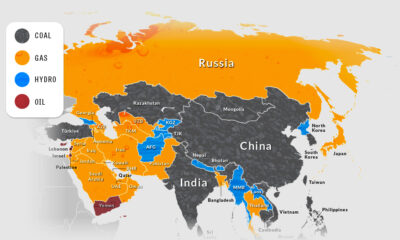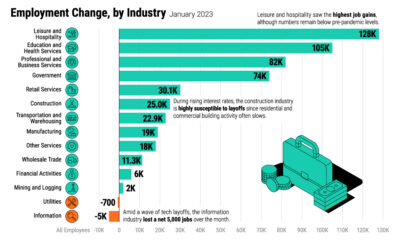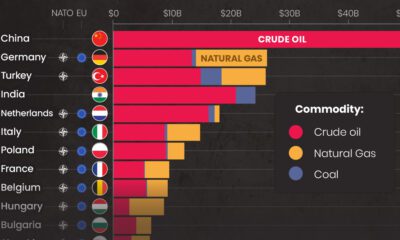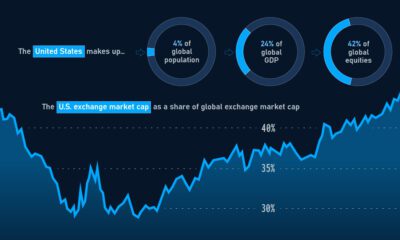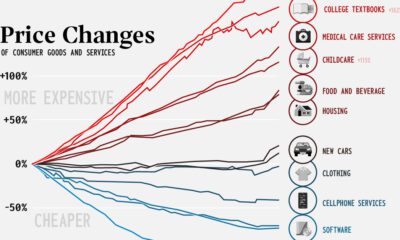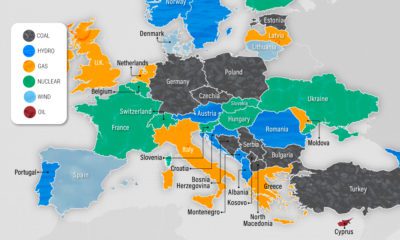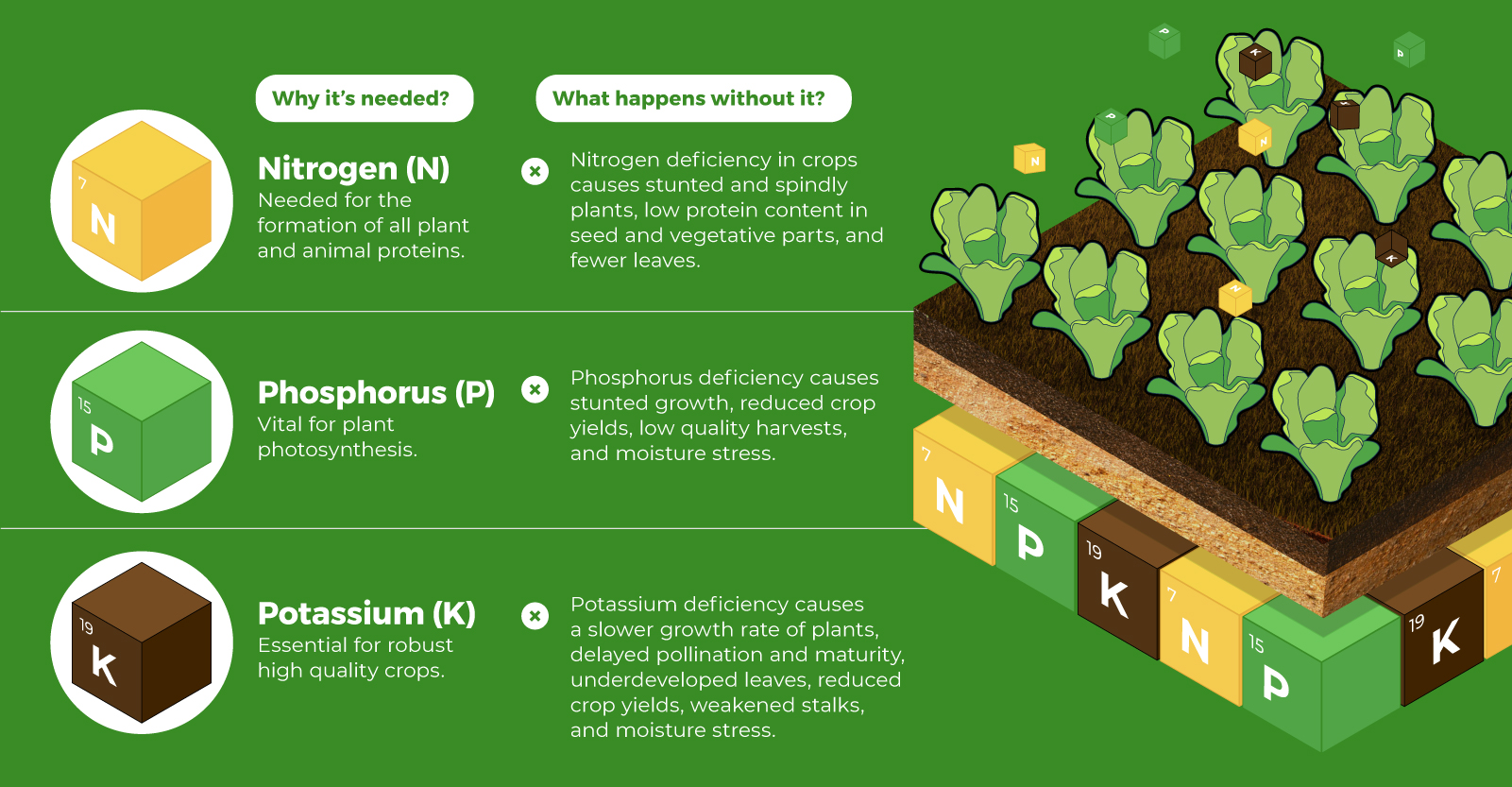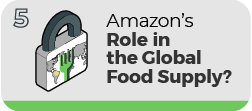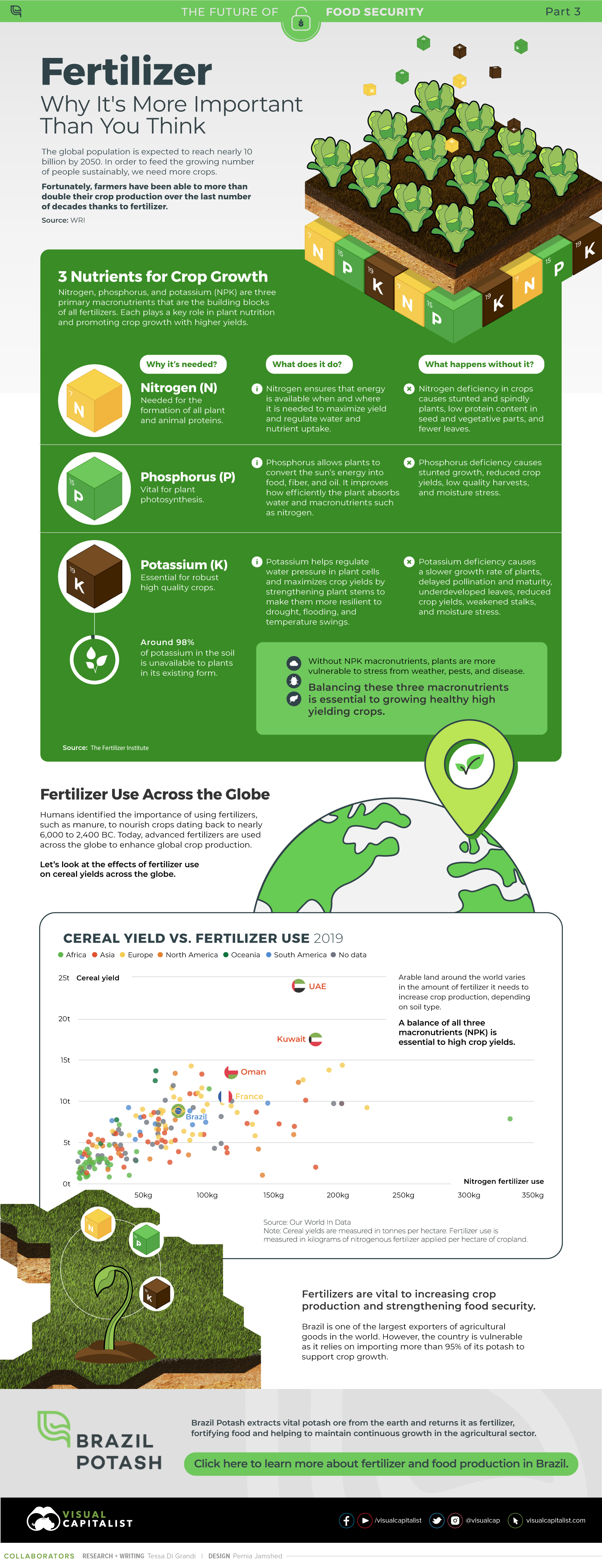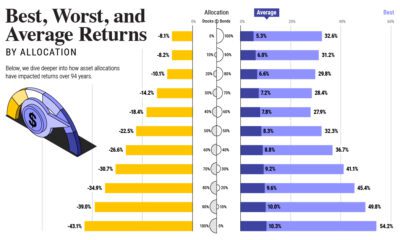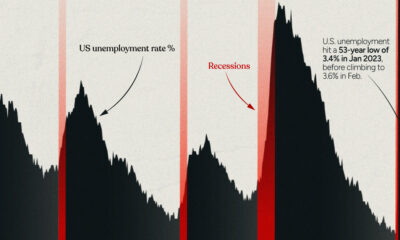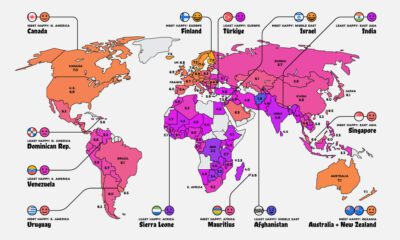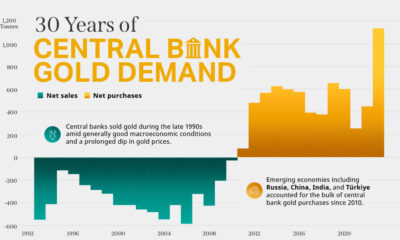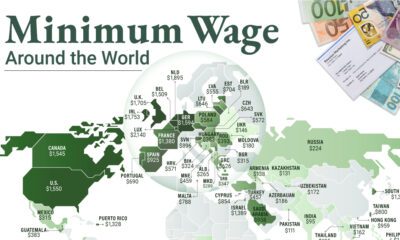However, in actuality, the converse is true: modern media creates an echo chamber. Facebook and Google both create information vaccuums: by taking your past activities in account, they will display “news” that is geared to provide confirmation bias. In other words, you will see posts in your newsfeed and search results that tend to confirm your pre-existing beliefs, rather than challenge them. One way to challenge this? Instead of just assuming what other people believe, it’s worth it to actively search for data that provides a broad and unbiased perspective. Then, interpret and internalize the data, and you’ll have a much more representative idea of what people think.
What Americans Actually Think About Energy
In today’s infographic, which uses data from a survey by the AP-NORC and the Energy Policy Institute, we get a summary of opinions on energy and climate change from a nationally representative sample of 1,096 Americans. An analysis of the survey data helps us understand what Americans actually think, rather than what we assume they may think. Here are some of the most interesting tidbits:
65% of Americans think that climate change is a problem that the U.S. government should address, and 10% of Americans believe climate change is not happening. 42% of Americans aren’t willing to pay even just $1 per month to combat climate change. Americans largely underestimate fracking’s role in providing for the energy mix. Only 1 in 5 Americans correctly say that it produces two-thirds of U.S. natural gas. Most Americans don’t hold strong opinions on fracking – but for those that do, people that oppose fracking outnumber those in favor of fracking by a 2:1 ratio. Only a quarter of Americans think the U.S. government will fulfill its obligations to reduce greenhouse gas emissions. 54% of Americans favor federal regulation to decrease coal consumption, but that number drops to 45% if jobs will be lost.
It’s always interesting to get an in-depth and representative perspective of what people believe, rather than making false assumptions based on what can be seen on social feeds, news sites, or search results. Did any of the numbers from the survey surprise you? on Over recent decades, farmers have been able to more than double their production of crops thanks to fertilizers and the vital nutrients they contain. When crops are harvested, the essential nutrients are taken away with them to the dining table, resulting in the depletion of these nutrients in the soil. To replenish these nutrients, fertilizers are needed, and the cycle continues. The above infographic by Brazil Potash shows the role that each macronutrient plays in growing healthy, high-yielding crops.
Food for Growth
Nitrogen, phosphorus, and potassium (NPK) are three primary macronutrients that are the building blocks of the global fertilizer industry. Each plays a key role in plant nutrition and promoting crop growth with higher yields. Let’s take a look at how each macronutrient affects plant growth. If crops lack NPK macronutrients, they become vulnerable to various stresses caused by weather conditions, pests, and diseases. Therefore, it is crucial to maintain a balance of all three macronutrients for the production of healthy, high-yielding crops.
The Importance of Fertilizers
Humans identified the importance of using fertilizers, such as manure, to nourish crops dating back to nearly 6,000 to 2,400 BC. As agriculture became more intensive and large-scale, farmers began to experiment with different types of fertilizers. Today advanced chemical fertilizers are used across the globe to enhance global crop production. There are a myriad of factors that affect soil type, and so the farmable land must have a healthy balance of all three macronutrients to support high-yielding, healthy crops. Consequently, arable land around the world varies in the amount and type of fertilizer it needs. Fertilizers play an integral role in strengthening food security, and a supply of locally available fertilizer is needed in supporting global food systems in an ever-growing world. Brazil is one of the largest exporters of agricultural goods in the world. However, the country is vulnerable as it relies on importing more than 95% of its potash to support crop growth. Brazil Potash is developing a new potash project in Brazil to ensure a stable domestic source of this nutrient-rich fertilizer critical for global food security. Click here to learn more about fertilizer and food production in Brazil.
